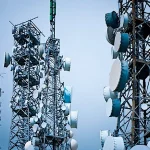Mobile Phone Satisfaction Plunges to 10-Year Low, ACSI Report Reveals
In a surprising turn, consumer satisfaction with cell phones in the U.S. has dropped to its lowest level in a decade, according to the latest American Customer Satisfaction Index (ACSI) report. The...

In a surprising turn, consumer satisfaction with cell phones in the U.S. has dropped to its lowest level in a decade, according to the latest American Customer Satisfaction Index (ACSI) report.
Table Of Content
The 2025 ACSI survey, based on feedback from 27,494 U.S. consumers, shows a steep drop in satisfaction—from a record high in 2024 to a score of 78 out of 100, the lowest since 2015. The data suggests that despite flashy upgrades and cutting-edge features, smartphone users remain deeply concerned about fundamental issues like battery life, call reliability, and ease of use.
“Brands keep racing to add new capabilities, yet customers still judge smartphones by the fundamentals,” said Forrest Morgeson, Director of Research Emeritus at ACSI.
📱 Innovation vs. Essentials: What Consumers Really Want
Tech experts echo these concerns. Tim Bajarin of Creative Strategies noted, “Battery life is the number one issue we see in our smartphone surveys. Dropped calls and disconnects during social media usage remain a big frustration.”
Bryan Cohen, CEO of Opn Communication, added, “People are excited about new tech like AI, but if it’s not user-friendly, it backfires. Even my 72-year-old dad was excited about his new iPhone 16, until he got frustrated with how complex it was to use.”
📉 Top Phone Brands Take a Hit
Major phone manufacturers didn’t escape consumer dissatisfaction:
-
Apple and Samsung both saw their satisfaction scores slip by one point to 81.
-
Samsung narrowly edged out Apple in the 5G phone category.
-
Google and Motorola fell further, each losing three points and landing at 75.
One of the key insights from the report was a widening satisfaction gap between 5G and non-5G phone users. While 5G phones maintained a decent score of 80, legacy devices dropped seven points to 68, highlighting compatibility issues and performance inconsistencies.
“Older phones may not function optimally on newer spectrum bands,” said John Strand, of Strand Consulting. “And many users don’t realize their devices may not even be 5G-compatible.”
🌐 ISPs See Modest Satisfaction Gains, Fiber Trails Behind
While phone satisfaction declined, internet service providers (ISPs) saw slight improvements. Overall ISP satisfaction climbed one point to 72:
-
Fiber ISPs dropped one point to 75
-
Non-fiber ISPs surged three points to 70
Top Fiber Performers:
-
AT&T Fiber leads with 78
-
Google Fiber and Verizon FiOS follow at 76
-
Xfinity Fiber scores 75
Notably, Optimum gained eight points, rising to 71 due to stronger customer service and value-added services.
Top Non-Fiber Performers:
-
T-Mobile and AT&T lead at 78
-
Verizon follows with 77
-
Kinetic by Windstream made the biggest leap, up 11 points to 62, thanks to practical service improvements.
📶 Wireless Service Satisfaction Also Declines
The wireless phone service sector also saw a downturn:
-
Industry average dropped one point to 75
-
Mobile Network Operators (MNOs) fell to 75
-
Value MVNOs dropped to 78
-
Full-service MVNOs slipped to 74
Among major carriers:
-
T-Mobile dropped to 76
-
AT&T fell sharply by five points to 74
-
UScellular slipped to 72
-
Verizon was the only gainer, up one point to 75
AT&T also recorded the steepest fall in call quality (77) and network capability (76)—both down significantly.
⌚ Smartwatches Join the Rankings
For the first time, smartwatches were included in the ACSI report. Samsung leads with a satisfaction score of 83, followed by Apple Watch at 80, and Fitbit at 72.
🔍 Key Takeaways: Focus on Fundamentals Still Matters
Despite continuous innovation, the ACSI survey confirms that consumer satisfaction depends on mastering the basics. Features like AI and high-end cameras may dazzle, but unless battery life, call reliability, and ease of use are prioritized, brands risk alienating users.
Stay tuned as the mobile and telecom industry navigates growing consumer expectations in the age of 5G, AI, and connected devices.









No Comment! Be the first one.